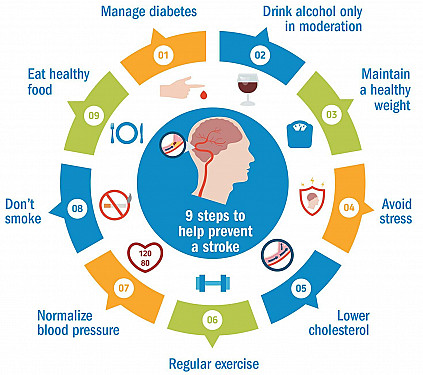A major change for restless legs treatment
Dopamine agonists are no longer recommended as the main way to reduce symptoms, due to potential long-term complications.
- Reviewed by Anthony L. Komaroff, MD, Editor in Chief, Harvard Health Letter; Editorial Advisory Board Member, Harvard Health Publishing

People with restless legs syndrome (RLS) can’t help it: they are racked with an extremely uncomfortable, overwhelming need to move their legs when resting — typically at night. It forces them to walk around for relief, which lasts only while they’re moving.
For more than 20 years, the go-to treatment for RLS symptoms has been a class of medications called dopamine agonists, such as pramipexole (Mirapex), ropinirole, and transdermal rotigotine (Neupro). But the American Academy of Sleep Medicine (AASM) now says that while the drugs may help at first, long-term use can eventually make RLS symptoms worse — so it recommends against such use.
“We no longer recommend them as a first-line treatment, and maybe not even the second. You have to warn patients about them and monitor them regularly if they take them,” says Dr. John Winkelman, an RLS specialist and professor of psychiatry at Harvard Medical School. He led the AASM task force that wrote the new recommendations, which were published in the January 2025 issue of the Journal of Clinical Sleep Medicine.
What goes wrong?
Dopamine agonists mimic the effects of dopamine, a brain chemical that helps regulate movement. For people with RLS, whose brains might have difficulty using dopamine properly, the drugs temporarily restore dopamine function and alleviate symptoms.
But the brain eventually gets used to dopamine agonists, diminishing their effectiveness over time and requiring higher doses for symptom relief. Even more concerning, this can lead to augmentation, a process in which RLS symptoms become more severe, widespread (extending to the arms), and frequent (occurring both at night and day).
“Over time, many people have to take the medications three times a day, and if they miss a single dose, their leg and arm symptoms are terrible. They can’t drive, work, ride on a plane, go to a movie — anything where you can’t get up and move around,” Dr. Winkelman says.
Who gets augmentation?
Dr. Winkelman says dopamine agonists are prescribed for two-thirds of the people who are treated for RLS. “Among those people, a quarter to half of them have augmentation, and the rest are at risk for it,” he says.
The process doesn’t occur immediately. “It develops in about 8% of patients per year. Many people can go years before it develops. But given that people might develop RLS symptoms in middle age, you have a lot of years left for augmentation to occur,” Dr. Winkelman says.
The new guidelines
Based on evidence from the last decade, the AASM’s new RLS guidelines now strongly recommend another class of medications as the first line of treatment. The drugs, called alpha-2-delta ligands, help regulate the nervous system and reduce RLS symptoms without causing augmentation. Examples of alpha-2-delta ligands include gabapentin (Neurontin), gabapentin enacarbil (Horizant), and pregabalin (Lyrica).
The new guidelines also recommend the use of intravenous or oral iron supplementation for people with low levels of iron in the brain (a potential cause of RLS). “Anyone with blood iron levels in the bottom half of the normal range has an increased risk of low brain iron levels and may benefit from iron supplementation,” Dr. Winkelman says.
Some caveats
Switching to an alternative medication after being on a dopamine agonist requires careful supervision. “You can’t suddenly stop taking it. That brings on rebound symptoms with a vengeance. We have to detox you, adding another medication that will help symptoms and then slowly tapering you off the dopamine agonist by 10% per month. It can take six months to a year,” Dr. Winkelman says.
If other medications fail to treat your symptoms or if you can’t tolerate them, the guidelines say that it might be okay to take a dopamine agonist, but only with extreme caution. “You must be monitored regularly and should switch to an alternative if augmentation starts,” Dr. Winkelman says.
What else you can do
In addition to taking medications, a number of pill-free strategies can help reduce RLS symptoms. The basics include modest exercise and avoiding factors known to make RLS worse, such as alcohol, antihistamines, antinausea drugs, and most antidepressants.
Other approaches can help, too, such as treating obstructive sleep apnea (if you have it), taking a warm bath, massaging the legs, applying hot or cold packs to the legs, and possibly wearing a small device (marketed as Nidra) on each leg to stimulate the muscles and fool the body into thinking you’re standing up. If you’re at work, consider using a standing desk.
If you’re still taking dopamine agonists, Dr. Winkelman suggests asking your doctor why, and perhaps bringing this article to your next appointment. “My concern is that most doctors aren’t aware of the recommendation change,” he says. “But they’re playing with fire when they prescribe dopamine medications for RLS. They need to think twice about prescribing them and caution patients about potential long-term complications.”
This article is brought to you by Harvard Health Online+, the trusted subscription service from Harvard Medical School. Subscribers enjoy unlimited access to our entire website, including exclusive content, tools, and features available only to members. If you're already a subscriber, you can access your library here.
Image: © AsiaVision/Getty Images
About the Author

Heidi Godman, Managing Director
About the Reviewer

Anthony L. Komaroff, MD, Editor in Chief, Harvard Health Letter; Editorial Advisory Board Member, Harvard Health Publishing
Disclaimer:
As a service to our readers, Harvard Health Publishing provides access to our library of archived content. Please note the date of last review or update on all articles.
No content on this site, regardless of date, should ever be used as a substitute for direct medical advice from your doctor or other qualified clinician.
















